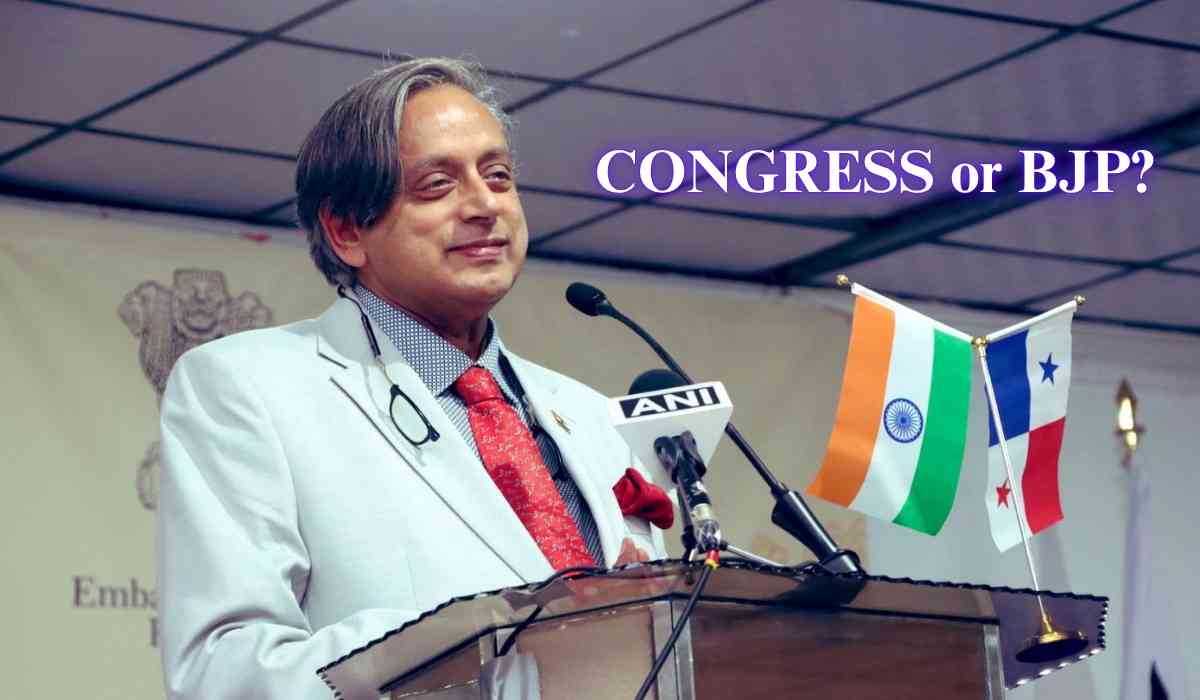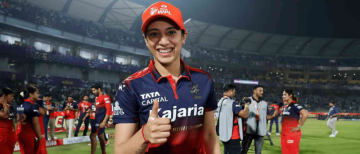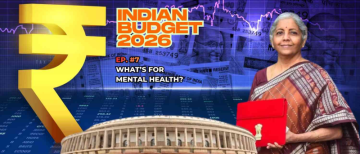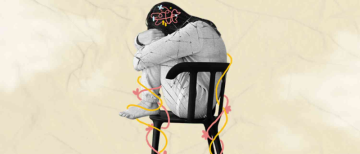Is Shashi Tharoor inching toward a political crossroad? The seasoned diplomat-turned-parliamentarian has long been an intellectual force within the Indian National Congress. But his recent endorsements of key actions by the Modi-led BJP government—especially on matters of national security—have triggered visible tremors within the party. As India inches toward crucial state and general elections, Tharoor’s uneasy relationship with the Congress is now being tested more publicly and more persistently than ever before.

The Operation Sindoor Flashpoint: Tharoor’s Remarks Set Off Political Firestorm
At the heart of the current political maelstrom is Operation Sindoor, India’s retaliatory military strike following the Pahalgam terror attack, which left 26 women dead. Tharoor, selected to lead one of seven multi-party delegations abroad to articulate India’s counter-terrorism position, found himself in controversy yet again—this time from the global stage.
Speaking at an Indian diaspora event in Panama, Tharoor praised India’s increasingly assertive military responses to cross-border terror:
“For the first time, India breached the LoC… after the Uri strike in 2016… Even during the Kargil War, we had not crossed the LoC. Then came the Balakot strikes after Pulwama. This time [Operation Sindoor], we went beyond both… striking in the Punjabi heartland of Pakistan.”
While these remarks resonated with many as an acknowledgment of India's evolving military doctrine, they infuriated the Congress leadership, which has long maintained that cross-border strikes were carried out under its tenure too—albeit without public fanfare.
What does the Congress party want & How much they really care for the country? Should the Indian MPs go to foreign nation and speak against India and its Prime Minister?
There’s limit to political desperation! https://t.co/JiuYqpW2tN— Kiren Rijiju (@KirenRijiju) May 28, 2025
Congress Pushes Back with Facts—and Fury
Congress spokespersons Pawan Khera and Udit Raj quickly launched a rebuttal. Khera tagged Tharoor on X (formerly Twitter), sharing a media excerpt quoting S. Jaishankar, then foreign secretary in 2016, who told a parliamentary committee that “target-specific, limited-calibre, counter-terrorist operations” had occurred across the LoC even before Modi’s tenure.
Khera further escalated the matter by posting excerpts from Tharoor’s own 2018 book, The Paradoxical Prime Minister, in which the MP had criticized the BJP for politicizing national security. Tharoor had written:
“The shameless exploitation of the 2016 surgical strikes... as a party election tool—something the Congress had never done... marked a particularly disgraceful dilution of the principle that national security issues require both discretion and non-partisanship.”
Union Minister Kiren Rijiju, however, sprang to Tharoor’s defense, calling the Congress’ reaction “political desperation.”
Tharoor attempted to clarify on social media, asserting he was only referring to retaliatory operations, not war-time actions, and that his comments were made in the specific context of terrorism-related reprisals.
After a long and successful day in Panama, i have to wind up at midnightvhere with departure for Bogota, Colombia in six hours, so I don’t really have time for this — but anyway: For those zealots fulminating about my supposed ignorance of Indian valour across the LoC: in tge…— Shashi Tharoor (@ShashiTharoor) May 29, 2025
A Career of Contradictions: Between Congress Ideals and Tharoor’s Independent Voice
Tharoor’s current conundrum is hardly an overnight development. The dissonance between the Congress high command and the Thiruvananthapuram MP has been simmering for years. From praising Modi’s inclusive rhetoric post-2014 to defending the BJP-led government's national security strategies, Tharoor has repeatedly stepped outside the conventional Congress line.
In a 2014 HuffPost article, he described Modi’s transformation from “a hate-figure into an avatar of modernity,” noting:
“It would be churlish not to acknowledge Modi 2.0’s inclusive outreach… India’s people, and its pluralist democracy, deserve no less.”
This didn’t sit well with Congress traditionalists. Though Tharoor wrote to the party leadership reaffirming his commitment to secularism, the damage was done. His image as a Congress outsider within began to take root.
As Jairam Ramesh succinctly put it:
“Congress mein hona aur Congress ka hona mein zameen aasman ka antar hai.” (Being in the Congress and being of the Congress are worlds apart.)
I agree with that Dr @ShashiTharoor who wrote about surgical strikes in his book in 2018 - ‘The Paradoxical Prime Minister’. #ReadingNow pic.twitter.com/hAhsfwH0JT— Pawan Khera 🇮🇳 (@Pawankhera) May 29, 2025
Political Isolation and Internal Resentment
The backlash to Tharoor’s comments on Operation Sindoor wasn’t the first sign of internal friction. Earlier this year, Congress was already uncomfortable with the Centre picking Tharoor to lead an international delegation, despite the party suggesting other names. The BJP’s rejection of most Congress recommendations—except Anand Sharma—added insult to injury.
Tharoor’s post-operation praise for Modi—saying he handled the situation “extremely well”—deepened the rift. This, combined with his occasional support for Kerala’s ruling Left Democratic Front (LDF), has unnerved the Congress-led United Democratic Front (UDF), which is preparing to unseat the LDF in the 2026 Assembly elections.

“I Have Other Options”
In February, Tharoor ignited a fresh wave of speculation about his political future when he remarked:
“If the party wants to utilise my strengths, I’ll be there. If not, I have other options.”
Though he later clarified that “options” did not include joining the BJP, a widely circulated selfie with Piyush Goyal—a Union Minister who once mocked Tharoor’s “foreign accent”—only added fuel to the fire.

The G-23 Episode: Roots of Estrangement
Tharoor’s estrangement from the party’s high command dates back to the post-2019 Congress debacle. As part of the G-23 group—a collective of senior Congress leaders who questioned the Gandhi family’s leadership—Tharoor was already treading a politically precarious path.
His decision to contest the 2022 Congress Presidential elections against Mallikarjun Kharge, who was seen as the Gandhis’ preferred candidate, further widened the chasm. Though the party gave him other roles after his defeat, murmurs of marginalization persisted.
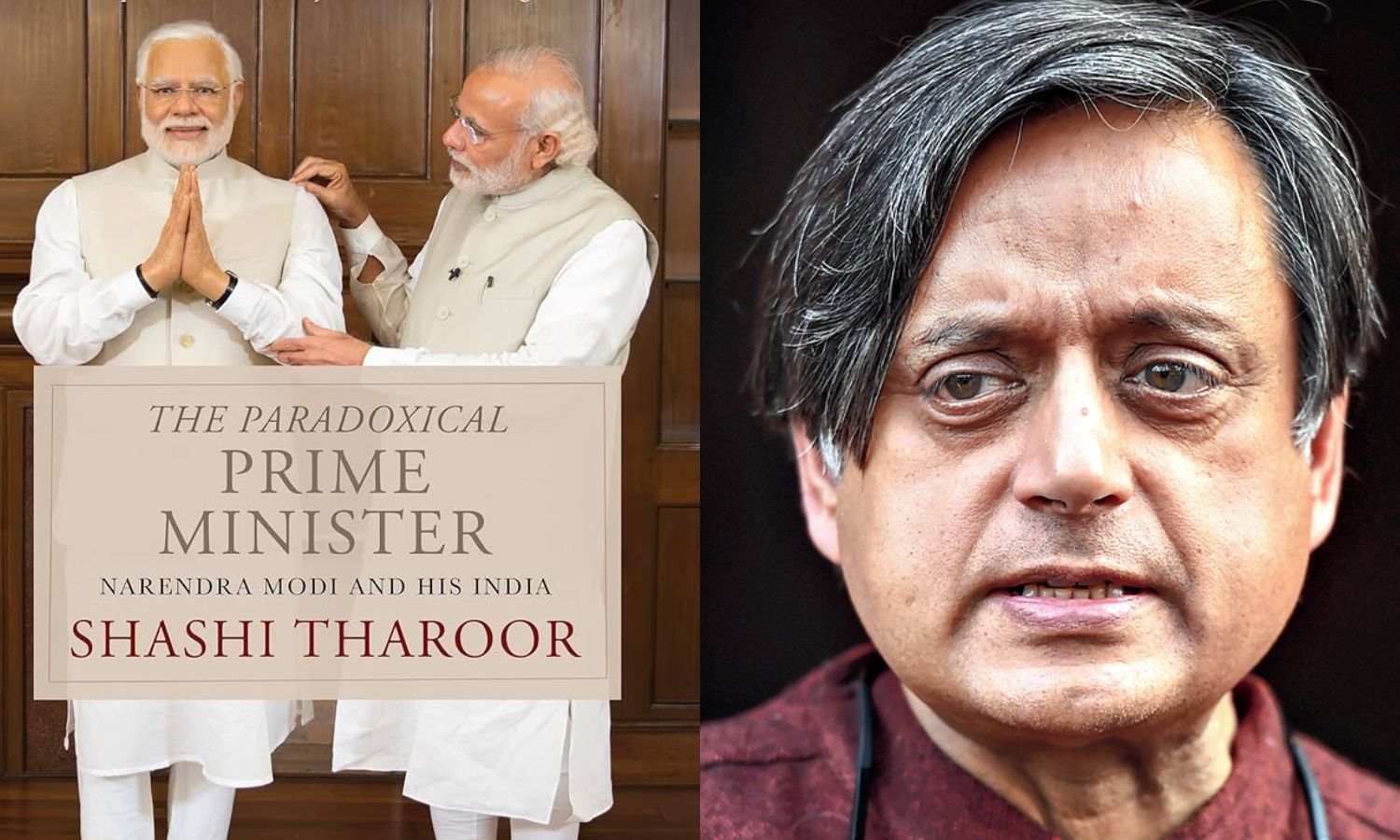
A Man of Global Standing, Political Uncertainty
Interestingly, it wasn’t always this way. In 2005, then-Prime Minister Manmohan Singh asked Tharoor if he would contest for UN Secretary-General. A year later, India backed his candidacy, although with a noticeable delay. Tharoor lost the race to South Korea’s Ban Ki-moon, largely due to a U.S. veto—a reflection of the Bush administration’s reluctance to have another “strong” Secretary-General like Kofi Annan.
Now, two decades later, the Congress party that once celebrated his global stature is hesitant to trust him with a domestic leadership role. Yet, his urban appeal, international credibility, and status as a literary icon make him difficult to sideline entirely.
“He is wildly popular in the literary circuit,” a close friend told Frontline. “If the party does not tap into his potential, he will slowly move away from party politics and stay as a public intellectual.”

What Lies Ahead for Tharoor?
Despite the persistent buzz, insiders close to Tharoor insist he is unlikely to jump ship to the BJP. But his recent actions and statements suggest he’s no longer content playing a ceremonial role in Congress politics. His meeting with Rahul Gandhi, reportedly behind closed doors, signals an attempt at damage control—but whether it can mend the fractures remains uncertain.
With the 2026 Kerala elections and the 2029 General Elections on the horizon, the Congress has to decide: Will it embrace Tharoor’s unique voice or risk losing him to the sidelines—or worse, to another political future?
In Indian politics, as always, never say never.
Views expressed in the above piece are personal and solely those of the author. They do not necessarily reflect Vygr’s views.
With inputs from agencies
Image Source: Multiple agencies
© Copyright 2025. All Rights Reserved Powered by Vygr Media.

